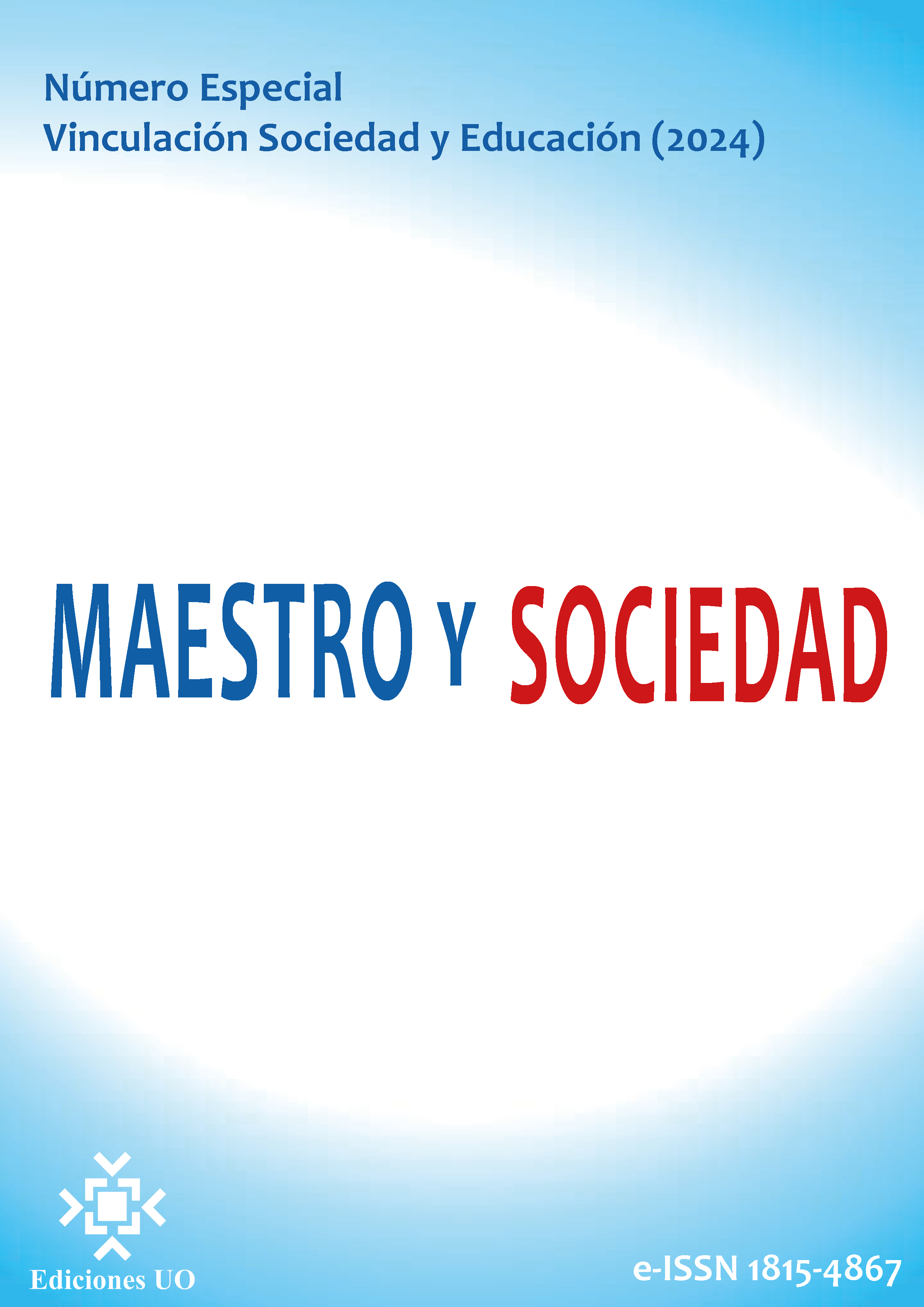Contribution of emotional intelligence in the training of new professionals
Keywords:
Emotions. emotional intelligence, holistic trainingAbstract
Introduction: The research aimed to analyze the contributions of emotional intelligence in the training of new professionals, to be able to insert themselves into the unknown challenges that reality imposes on them. Materials and methods: The methods used were quantitative and qualitative, the type of research was descriptive, the technique used was the survey, the software used was SPSS27, which helped measure reliability through Cronbach's Alpha, providing a reliability of 0.99. Results: The results showed that it is essential to train for life, not only at a cognitive level, that one must teach how to manage emotions from values, discipline, creativity, the sense of responsibility, respect, therefore one must operate from cognition and emotion in a complementary way, providing holistic training that leads to a comprehensive integration of what they know, do and are, so that they can respond objectively to their realities and can harmoniously confront problems in an intelligent manner. Discussion: It is vitally important to manage emotions well because they affect the entire being in a holistic way, that is to say that if you do not have a critical vision of daily events that lead you to assume in a positive harmonious way, the time will come when Emotions do not respond in a real way, falling into chronic physical, physiological and psychological illnesses. Conclusions: Managing emotional intelligence is difficult because it involves managing one's own aptitudes, with emotional skills, becoming aware and creating skills to control. anger, hatred, envy that do not help maintain harmony in interpersonal relationships, the same ones that will allow self-control and fulfill the objectives and life project that each human being has, maturing each emotion only in this way the person who lives in harmony These emotions will be a productive and effective entity in all the activities you undertake.
References
Alves, M. (2011). Incertidumbre: miedo a lo desconocido. https://psicolo giapositivauruguay.com/2011/12/27/incertidumbre-miedo-a-lo-desconocido/
Baron, R. (2010). Emotional intelligence: an integral part of positive psychology. South African Journal of Psychology, 4(1). http://www.bibliocatalogo.buap.mx:3403/ehost/pdfviewer/pdfviewer?sid=68548787-de2e453b-a573-2d89177100aa%40sessionmgr111&vid=15&hid=104
Bertrand, R. (2015). ¿Qué es la inteligencia emocional? Descubriendo la importancia de las emociones. https://www.psicologiaymente.net/inteligencia/inteligencia-emocional#!
Casas Fernández, G. (2016). La Inteligencia Emocional. Revista Costarricense De Trabajo Social, (15). https://revista.trabajosocial.or.cr/index.php/revista/article/view/108
Gallo, F. y Vincenzi, H. (2005). Toques mágicos. Sirio.
Gardner, H. (2000). La educación de la mente y el conocimiento de las disciplinas. Lo que todos los estudiantes deberían comprender. Paidós.
Goleman, D. (1996). Inteligencia emocional. Kairos.
Goleman, D. (2000). La inteligencia emocional aplicada a las organizaciones. Kairos.
Goleman, D. (2002). La inteligencia emocional. Vergara.
Goleman, D. (2011). Leadership: the power of emotional intelligence. AMA.
Goleman, D. y Boyatzis, R. (2013). Emotional and social competency inventory. Hay Group.
Grinder, J. y Bandler, R. (1998). La estructura de la magia. (V. 1). Cuatro Vientos.
Maslow, A. (1973). El hombre autorrealizado: hacia una psicología del ser. Kairos.
Pérez Porto, J. y Meríno, M. (2011). Definición de inteligencia emocional. https://definicion.de/inteligencia-emocional/ [2017-03-14]
Rogers, C. ( 2000). El proceso de convertirse en persona. Paidós.
Sánchez Eligio, M. (2016). ¿Qué es la psicología energética? https://www.lifeder.com/psicolo gia-energetica/
Sierbert, A. (2007). La Resiliencia. Construir en la adversidad. Alienta Editorial.
Vorvick, L. (2014). El estrés y su salud. Biblioteca nacional de medicina de EUA. Biblioteca nacional de medicina de EUA. https://medlineplus.gov/spanish/ency/article/003211.htm
Published
How to Cite
Issue
Section
License
Copyright (c) 2024 Lilia Moncerrate Villacis Zambrano , Valeria Cecilia Bravo Gómez, Luis Daniel Zambrano Molina, Elizabeth del Carmen Ormaza Esmeraldas

This work is licensed under a Creative Commons Attribution-NonCommercial-NoDerivatives 4.0 International License.
This journal provides immediate open access to its content, based on the principle that offering the public free access to research helps a greater global exchange of knowledge. Each author is responsible for the content of each of their articles.



























 Universidad de Oriente
Universidad de Oriente 